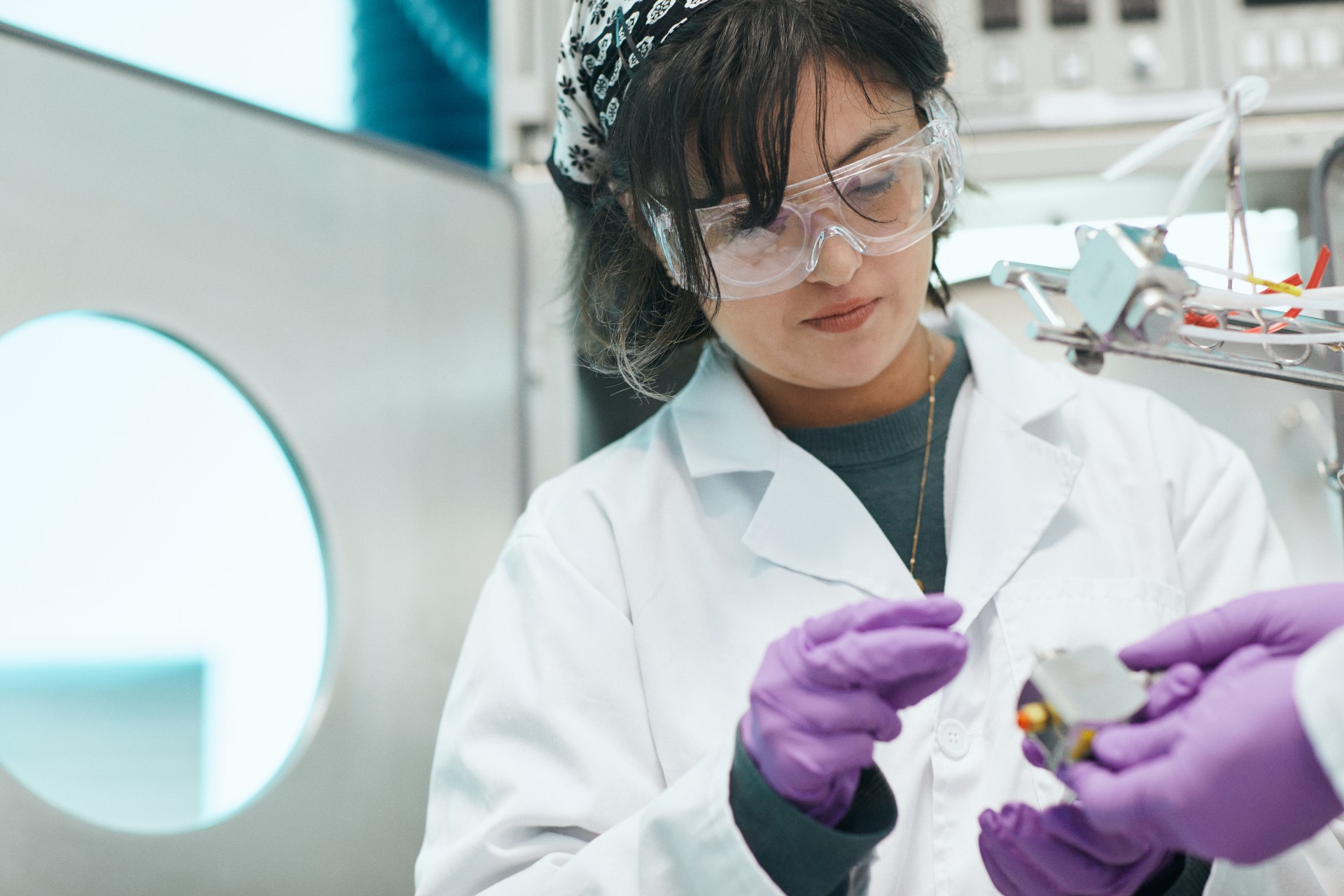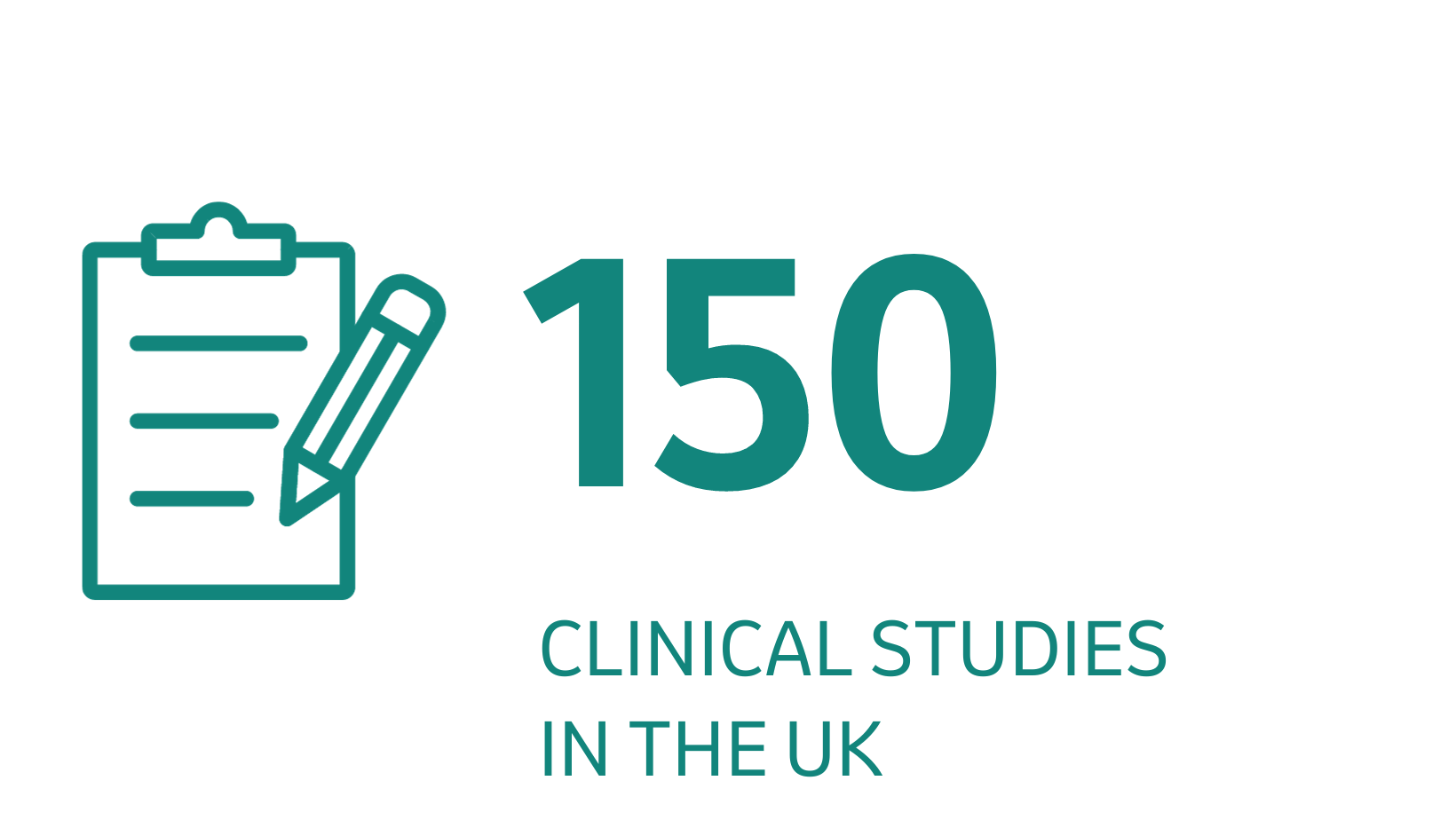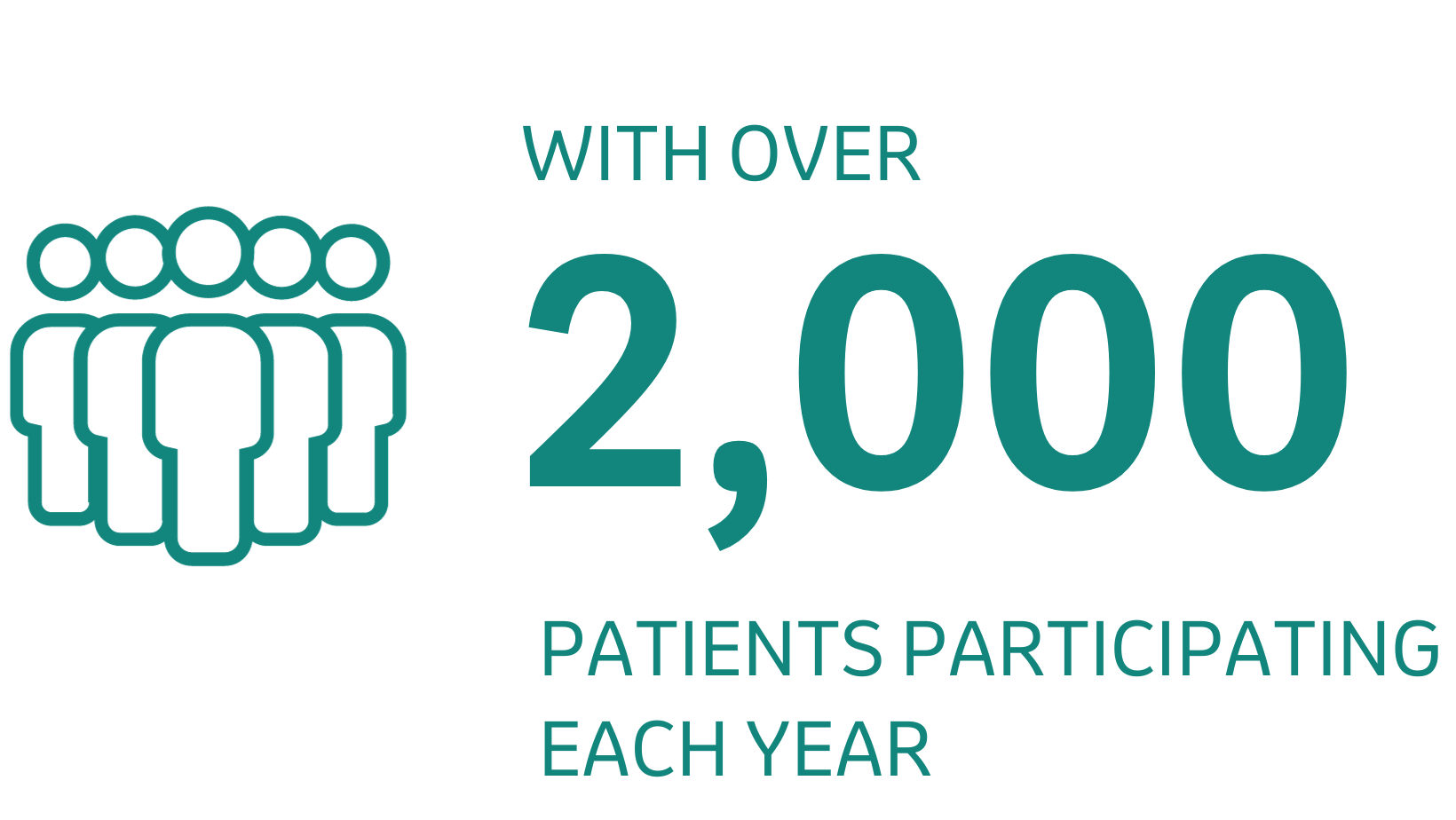
Clinical Development
People count on us to make medicines that have well documented safety and effectiveness profiles and offer value. Clinical trials (also known as clinical studies) are a critical step in this process.
At any one time, we conduct approximately


These volunteers are playing a vital role in the rigorous and systematic testing process medicine must undergo before receiving approval. This process is designed to evaluate whether a new product should be approved for use in the broader population.

Our clinical trials are designed, conducted and monitored in adherence to the guidelines of The International Council for Harmonisation of Technical Requirements for Pharmaceuticals for Human Use (ICH).
MSD clinical trials adhere to the same standards whether they take place in the UK or elsewhere around the world.
CLINICAL TRIAL TRANSPARENCY
Regardless of their outcome, we register clinical trials at ClinicalTrials.gov.
We have been posting results of clinical trials at the site since October 2008.
CODE OF PRACTICE
The ABPI Code of Practice requires that companies in the UK register current and future trials within 21 days of enrolling the first patient, and results must be published within one year of marketing authorisation or one year from completion for marketed products. We are pleased to be meeting these requirements.
ACCESS TO DATA
Upon request, we also evaluate requests for access to clinical trial data from external researchers. Each request is evaluated based on criteria that balance the need to advance science with the need to protect intellectual property and confidential information (and in compliance with applicable privacy and data-protection laws, rules and regulations).
STUDY PROTOCOLS
We provide clinical study protocols to biomedical journals when submitting a manuscript on a clinical trial, allowing journal editors and peer reviewers to use this protocol in their evaluation of the manuscript for publication (and, key sections of protocol may be published upon acceptance).
CLINICAL TRIAL PHASES
Each Clinical Trial phase has a different purpose in the development of a medicine or vaccine and protocols are designed to answer certain research questions accordingly. MSD protocols follow strict ethical and scientific quality requirements to ensure the rights and safety of trial participants as well as giving assurance that the trial results are credible and accurate.

PHASE I
Researchers test an experimental drug or treatment in a small group of healthy people (20–80) for the first time to evaluate its safety, determine an appropriate dosage, trace what happens to the compound in the body, and begin to identify side effects.

PHASE II
The drug or treatment being studied is given to a larger group of people with the disease (100–300) to obtain preliminary evidence of an effect and to further evaluate its safety. If there is evidence of an effect and the risks are considered acceptable, the drug may move to the next stage.

PHASE III
This phase of trial tests a drug candidate in a larger number of people with the disease (1,000–3,000) further testing its effectiveness and monitoring for side effects. In some cases this will be compared to a treatment standard, if one is already available.
GB-NON-08334 | November 2023